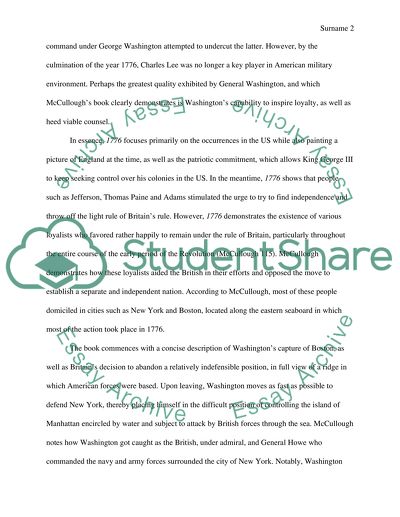Cite this document
(“Book Review: 1776 by David McCullough Report/Review - 1”, n.d.)
Book Review: 1776 by David McCullough Report/Review - 1. Retrieved from https://studentshare.org/literature/1609705-book-review-1776-by-david-mccullough
Book Review: 1776 by David McCullough Report/Review - 1. Retrieved from https://studentshare.org/literature/1609705-book-review-1776-by-david-mccullough
(Book Review: 1776 by David McCullough Report/Review - 1)
Book Review: 1776 by David McCullough Report/Review - 1. https://studentshare.org/literature/1609705-book-review-1776-by-david-mccullough.
Book Review: 1776 by David McCullough Report/Review - 1. https://studentshare.org/literature/1609705-book-review-1776-by-david-mccullough.
“Book Review: 1776 by David McCullough Report/Review - 1”, n.d. https://studentshare.org/literature/1609705-book-review-1776-by-david-mccullough.


